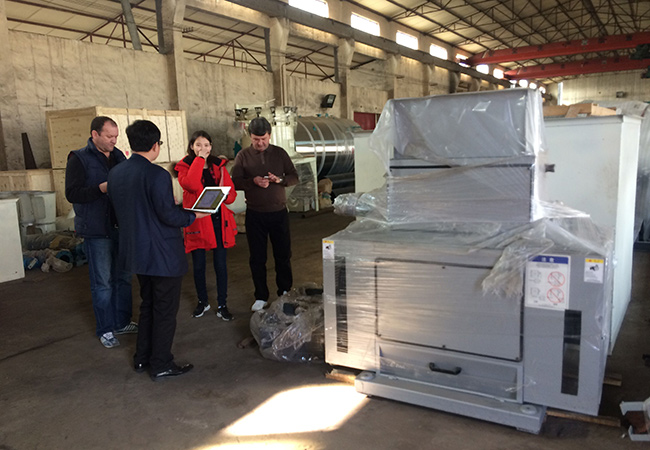Nov . 28, 2024 00:35 Back to list
Optimal Solutions for Vegetable Oil Production Facilities and Processing Systems
Best Vegetable Oil Plant Solutions Maximizing Efficiency and Sustainability
In recent years, the global demand for vegetable oil has surged, driven by increasing health consciousness among consumers, the expansion of the biofuel industry, and the growing food processing sector. As a result, vegetable oil production plants are under pressure to enhance efficiency while ensuring sustainability. This article explores some of the best solutions for vegetable oil plants, focusing on innovative technologies, sustainable practices, and efficient operations.
1. Advanced Processing Technologies
One of the most effective solutions for vegetable oil plants is the adoption of advanced processing technologies. Traditional methods, such as mechanical pressing and solvent extraction, can be optimized through the use of innovative equipment and processes. For instance, the introduction of cold pressing technology allows for the extraction of oil without the application of heat, preserving the oil's natural flavor, aroma, and nutrients. Moreover, the use of advanced refining techniques, such as membrane filtration and enzymatic degumming, can significantly improve oil quality and yield.
2. Automation and Digitization
The integration of automation and digital technologies in vegetable oil processing plants can lead to substantial efficiency gains. Smart sensors and IoT (Internet of Things) devices can be employed to monitor critical parameters such as temperature, pressure, and humidity in real-time. This data-driven approach enables plant managers to optimize processes, reduce waste, and increase production efficiency. Additionally, automation reduces labor costs and helps mitigate human errors, ensuring a more consistent and reliable production output.
3. Sustainable Sourcing of Raw Materials
Sustainability starts at the source. Vegetable oil plants should prioritize responsible sourcing of raw materials. This involves partnering with suppliers who adhere to sustainable agricultural practices, such as crop rotation and integrated pest management. Certifications like Roundtable on Sustainable Palm Oil (RSPO) or Rainforest Alliance can guide consumers and businesses in selecting sustainably produced raw materials. By supporting sustainable farms, vegetable oil plants can enhance their brand reputation while contributing to the preservation of the environment.
best vegetable oil plant solutions

4. Waste Management and By-product Utilization
Effective waste management is crucial for the sustainability of vegetable oil production. Each step of the oil extraction process generates by-products, such as seed husks, soapstock, and spent seeds. Instead of discarding these materials, progressive plants are finding innovative ways to repurpose them. For example, spent seeds can be processed into animal feed, while soapstock can be converted into biofuels or used in the production of soaps and cosmetics. This not only minimizes waste but also generates additional revenue streams for the plant.
5. Energy Efficiency Measures
Energy consumption is a significant cost factor in vegetable oil production. Implementing energy efficiency measures can lead to substantial savings and reduced carbon footprints. Plants can invest in energy-efficient machinery, optimize their heating and cooling systems, and implement heat recovery systems that capture and reuse waste heat. Additionally, transitioning to renewable energy sources, such as solar or wind power, can drastically reduce reliance on fossil fuels and make operations more sustainable.
6. Continuous Training and Development
Finally, a vegetable oil plant's success hinges on its workforce. Continuous training and development programs are essential to ensure that staff members are equipped with the latest knowledge and skills in processing technologies and sustainable practices. By fostering a culture of learning and innovation, plants can adapt to changing market demands and technological advancements more effectively.
Conclusion
The vegetable oil industry stands at a pivotal point where the demand for oil is rising, yet sustainability concerns are increasingly prominent. By embracing advanced processing technologies, automating operations, ensuring sustainable sourcing, managing waste effectively, optimizing energy use, and investing in workforce development, vegetable oil plants can navigate this complex landscape. These strategies will not only enhance operational efficiency but also contribute to a more sustainable future for the industry. As consumers become increasingly conscientious about their food choices, plants that adopt these best practices will undoubtedly gain a competitive edge in the marketplace.
-
Oil Processing Equipment - High-Efficiency Flaking Machine
NewsJul.25,2025
-
High-Efficiency Peanut Oil Refined Machine for Quality Oil Production Leading Exporters & Companies
NewsJul.08,2025
-
High Efficiency Sunflower Seed Oil Press – Leading Cooking Oil Press Machine Factories & Suppliers
NewsJul.08,2025
-
High-Efficiency Soybean Oil Press Machine – Leading Exporters & Reliable Companies
NewsJul.07,2025
-
High-Efficiency Seed to Oil Extractor – Reliable Extraction Machinery for Your Business
NewsJul.07,2025
-
High-Quality Pressing Screw of Oil Expeller for Efficient Oil Extraction Leading Exporters & Manufacturers
NewsJul.06,2025
